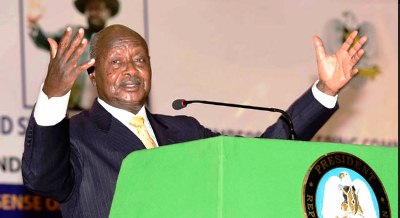S. Sudan advocacy body demands adherence to unilateral ceasefire
May 27, 2017 (JUBA) – A South Sudanese right body has urged the country warring factions to “fully” commit to the unilateral ceasefire declared by the president during last week’s national dialogue launch.

The said national dialogue, part of the reconciliation and healing processes under Article 2 (2.1.3 ) of Chapter I of the Agreement on the Resolution of Conflict in the Republic of South Sudan(ARCISS), signed by the parties in August 2015 is supposed to be implemented along other functions of a joint government under the same accord.
South Sudan’s President Salva Kiir declared a unilateral ceasefire with the country’s rebels as he launched a national dialogue on Monday.
“I am once again declaring a unilateral ceasefire effective from today so that we create an environment for an inclusive dialogue and so that we can transport humanitarian aid to famine-struck areas,” he said.
A 94-member steering committee for national dialogue was sworn in to start the work of bringing harmony and peace to the people of South Sudan. The committee co-chaired by Abel Alier and Angelo Beda Bangboru comprises of distinguished members of the country including religious leaders and professionals as well as politicians.
The national dialogue is both a forum and process through which the people South Sudan shall gather to redefine the basis of their unity as it relates to nationhood, redefine citizenship and belonging, as well as restructure the state for national inclusion.
SSHURSA, however, said President Kiir is one of the key parties to the ongoing conflict and he cannot thus be the lead patron, overseeing a national dialogue intended to resolve causes of the same conflict.
The human rights body, in its statement, also questioned the timing of the national dialogue initiative, saying it was not right given that South Sudan is now bleeding, with civil war raging all over the nation.
“The warring parties are still in active combat, famine is looming, violence remains the greatest threat to the civil populations and punctuated by constant human rights abuses. National dialogue as of now, cannot, therefore, be the wise choice to assume that it will by itself, miraculously put off the ongoing war in the country,” it said.
Also of concern, it further observed, is the membership to the launched national dialogue, adding that it has “exclusively” been dominated by President Kiir’s friends, allies and members of the country’s ruling Sudan’s People Liberation Movement(SPLM) party.
“Practically speaking, a national dialogue with genuine intent to restore stability in a war-torn South Sudan, should have been designed in a manner that involves key armed opposition actors under main armed Opposition Leader Dr Riek Machar,” it stated.
The rights body, however, called for inclusion of opposition political parties, key civil society groups, grassroots community leaders and religious groups from South Sudan in the national dialogue process.
“A well-intended national dialogue should be participatorily inclusive yet the current national dialogue lacks such ingredients of inclusivity. In frank terms, the government is conducting a national dialogue with itself and its allies,” the statement further reads.
Meanwhile, the South Sudanese human rights entity appealed to regional and international bodies like the Intergovernmental Authority on Development (IGAD), African Union, United Nations and the Troika to appreciate the dire climax which violence in South Sudan has reached and overcome the indifference, then commit to a united voice and language to approach South Sudan’s conflict.
Of priority, it said, is for the international community to push for the speedy deployment of a Regional Protection Forces (RPF) in the war-torn East African nation.
“United efforts and voice of the regional and international actors genuinely feeling sufferings of South Sudanese civilians, will ensure full and urgent deployment of this force to protect civilians,” it stressed.
(ST)
